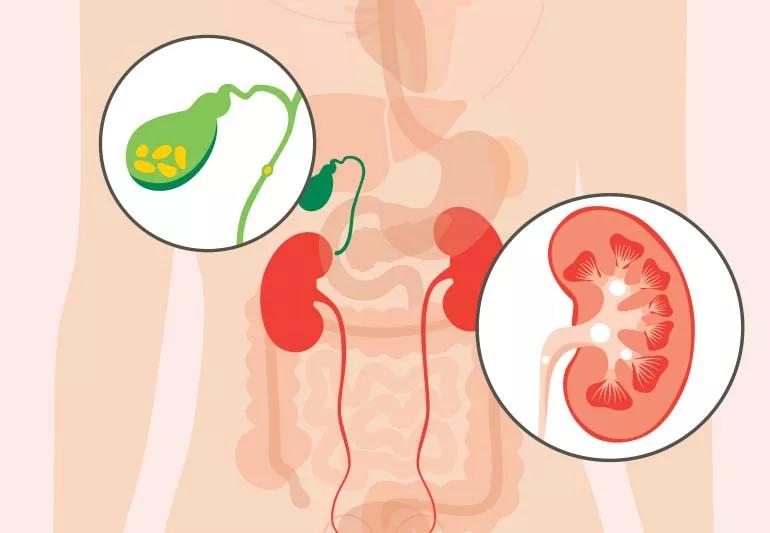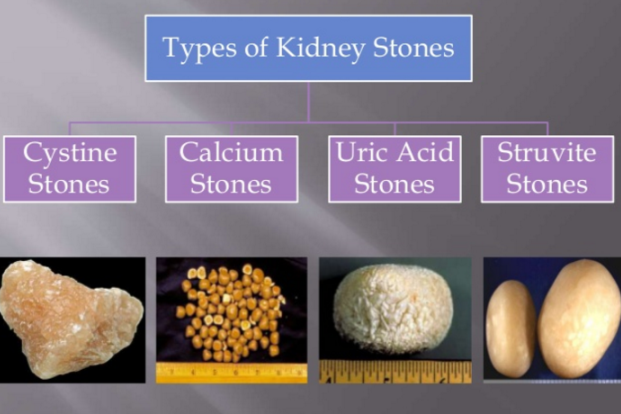Kidney Stones vs UTI: Exactly How to Recognize and Treat Each Problem Effectively
Kidney Stones vs UTI: Exactly How to Recognize and Treat Each Problem Effectively
Blog Article
Discovering the Symptoms and Causes of Kidney Stones in Contrast to Urinary System System Infections: A Detailed Guide
The exploration of kidney rocks and urinary system tract infections (UTIs) reveals an intricate interaction of signs and underlying reasons that necessitate cautious evaluation. What are the key distinctions in their signs, and how might these educate treatment strategies?
Review of Kidney Stones
Kidney stones, likewise referred to as kidney calculi, type when certain materials in the urine crystallize and accumulation, causing the development of tough deposits within the kidneys. These rocks can vary in dimension, ranging from a grain of sand to a golf round, and can be composed of numerous materials, one of the most common being calcium oxalate, uric acid, struvite, and cystine. The development of kidney stones is affected by several aspects, including nutritional habits, fluid consumption, and genetic proneness.
Symptoms of kidney rocks might include extreme pain in the back or side, blood in the urine, queasiness, and regular urination, especially as the stone moves via the urinary system. Diagnosis commonly includes imaging research studies such as ultrasound or CT scans, along with urinalysis to identify the stone's structure.
Therapy alternatives differ based on the dimension and kind of stone, along with the seriousness of signs and symptoms (Kidney Stones vs UTI). Tiny stones might pass normally with enhanced liquid intake, while larger rocks might require clinical treatments such as lithotripsy or surgical elimination. Understanding the pathophysiology and risk aspects linked with kidney rocks is important for efficient avoidance and monitoring
Review of Urinary System Tract Infections
Urinary tract infections (UTIs) are common bacterial infections that affect any part of the urinary system, including the kidneys, ureters, bladder, and urethra. They mainly happen when germs, usually from the stomach system, get in the urinary system, bring about swelling and infection. UTIs are classified into two main types: uncomplicated and complicated. Straightforward UTIs commonly take place in healthy and balanced people with normal urinary systems, while difficult UTIs might develop in individuals with underlying conditions, such as architectural problems or compromised body immune systems.
The prevalence of UTIs is especially greater in women than males, mainly due to physiological differences, such as a much shorter urethra. Danger factors consist of sex, specific contraceptive methods, urinary system retention, and dehydration. The diagnosis of UTIs is usually verified via urine examinations, which may disclose the existence of microorganisms, white blood cells, or red cell.

Symptoms of Kidney Stones
The discomfort related to kidney rocks can show up in various ways, commonly leading people to look for clinical focus. Among the most common signs is serious pain, normally local in the reduced back or side, which might emit to the abdominal area or groin. This discomfort, often referred to as sharp or cramping, can happen all of a sudden and might change in intensity.
Furthermore, individuals may experience hematuria, or blood in the urine, which can range from tiny quantities to noticeable staining. This sign may be gone along with by modifications in urinary habits, such as increased frequency or necessity, along with pain throughout urination. Nausea and throwing up are additionally common, additional resources typically resulting from the body's response to extreme discomfort.
Sometimes, individuals might experience fever and cools, particularly if a second infection creates due to the other blockage caused by the stones. Generally, the mix of serious pain, hematuria, modified urinary patterns, and intestinal signs and symptoms can give substantial insight right into the visibility of kidney stones, requiring timely clinical assessment and treatment. Recognizing these symptoms is vital for prompt medical diagnosis and effective administration of the problem.
Signs And Symptoms of Urinary System Tract Infections
Infections within the urinary tract typically offer a series of distinctive symptoms that can substantially affect life. One of the most usual symptoms consist of a persistent urge to urinate, frequently gone along with by a burning feeling during urination, called dysuria. Individuals may also experience increased frequency of urination, producing tiny amounts of pee each time.
Various other remarkable signs and symptoms consist of smelly or gloomy urine, which might show the visibility of germs or pus. In some situations, urine may show up pink or red because of the presence of blood, a condition referred to as hematuria. In addition, people may experience pelvic discomfort or stress, which can additionally intensify the feeling of necessity.
Systemic signs and symptoms may also show up, such as high temperature, chills, and fatigue, specifically if the infection has actually ascended to the kidneys. It is essential to identify these signs early, as without treatment urinary system infections can discover here result in more extreme issues. Kidney Stones vs UTI. Prompt medical attention is encouraged when these symptoms are observed, enabling proper diagnostic examination and treatment to ease discomfort and protect against further wellness problems
Sources Of Each Condition
Regularly, kidney rocks and urinary system tract infections occur from unique yet occasionally overlapping reasons that can affect individuals in a different way. Dehydration, inadequate liquid consumption, and high-sodium diet regimens can exacerbate these conditions, promoting crystallization within the urinary tract.

Recognizing these unique reasons is vital for prevention and therapy. Kidney Stones vs UTI. While lifestyle alterations may alleviate the danger of kidney rocks, suitable health and prompt therapy of urinary tract infections are essential for minimizing their recurrence and connected difficulties
Final Thought
In recap, kidney rocks and urinary system system infections existing distinctive signs and symptoms and underlying reasons. Kidney rocks are identified by extreme discomfort and metabolic factors, while urinary system system infections largely involve microbial infections leading to urinary system necessity and pain.
The expedition of kidney rocks and urinary tract infections (UTIs) exposes a complicated interplay of symptoms and underlying causes that warrant careful examination.Urinary system system infections (UTIs) are usual microbial infections that impact any type of part of the urinary system, including the kidneys, ureters, bladder, and urethra.Regularly, kidney rocks and urinary tract infections arise from distinct yet sometimes overlapping causes that can influence people in different ways.In recap, kidney stones and urinary system infections present distinct signs and symptoms and underlying reasons. Kidney stones are characterized by extreme discomfort and metabolic elements, while urinary system infections mostly involve microbial infections leading to urinary system urgency and discomfort.
Report this page